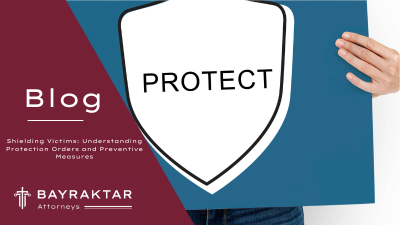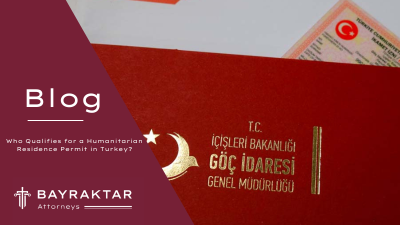
A name change lawsuit is the legal process that individuals must follow to change their names. The application for name change through the e-Government portal ended in December 2022. For a name change request to be granted, one of the valid reasons listed in the law must be present. If the request for a name change lacks a justified reason, the lawsuit will be dismissed.
How to Change a Name?
Name changes are made by altering the information in the population registry through a court decision and subsequent actions by the relevant authorities. Without a court decision, it is not possible to change a name. Additionally, a request must be based on a valid reason in the filed lawsuit.
Errors caused by mistakes made by the population registrar, such as spelling errors, can be corrected without filing a lawsuit. For example, if a name is mistakenly written as “Hava” instead of “Havva” in the registry, this can be corrected by applying to the population directorate without litigation.
Name Change via e-Government Portal
As of December 24, 2022, name changes can no longer be made through the e-Government system. The current system only accepts preliminary applications for surname changes by married, widowed, or divorced women. After submitting this preliminary application, individuals must apply to the population directorate.
Name Change by Application to the Population Directorate
Name changes through applications to the population directorate apply to errors or mistakes in names, such as missing or additional letters or spelling errors. In such cases, individuals can apply to the population directorate without filing a lawsuit.
Name Change by Filing a Lawsuit
Filing a lawsuit for a name change is a legal route for those who wish to change their names. However, filing a lawsuit does not guarantee a name change. To proceed with a name change, the individual must provide valid reasons, and the court must accept the claim.
Name Change Lawsuit Process
The name change lawsuit process begins with submitting a petition to the court and paying the court fees. The lawsuit is filed against the population directorate. The petition must clearly outline and prove the reasons for the name change.
After submitting the petition, a preliminary hearing is held. During this hearing, a date for the trial is determined, and this decision is communicated to the parties involved and their lawyers, if any.
On the trial date, the parties must be present in court. The individual requesting the name change and any witnesses are heard. If the court finds the request justified, it will issue a decision for the name change.
After the decision is communicated to the parties, it becomes final if no appeal is filed within two weeks. Following the finalization of the decision, the necessary announcements are made through the Press and Announcement Agency, and changes are made in the population registry.
Justified Reasons and Evidence in Name Change Lawsuits
For a name change request to be accepted, valid reasons must be presented and proven. Whether the presented reason is valid is at the discretion of the court. Valid reasons are not limited to a specific list. Each case is reviewed individually.
Some commonly cited valid reasons in court decisions include:
Name Change Due to Being Known by a Different Name
A common scenario in practice is changing a name because the individual is known by a different name in their social environment. The Supreme Court has ruled that being known by a different name constitutes a valid reason. For example, someone whose official name is “Ahmet” but is socially known as “Mehmet” can request a name change.
Name Change Due to Ridiculous or Ridiculed Names
Changing a name because it is ridiculous or a subject of ridicule is possible. Names that cause individuals to be ridiculed in society are considered valid reasons. For example, names like “Tosun,” “Satılmış,” “Geyik,” “İfik,” or “Karakuş” have been deemed valid reasons for name changes in court decisions. Similarly, obscene or immoral names can also be changed.
Name Change Due to Difficulty in Pronunciation
The difficulty of pronouncing a name is considered a valid reason for a name change. If the name is difficult for the individual’s social circle to pronounce, and this affects their life, the court may approve the name change.
Name Change Due to Religious or Citizenship Changes
Changing a name due to religious or citizenship changes is considered a valid reason. For instance, someone may want to adopt a name associated with their newly embraced religion or citizenship. The Supreme Court has also deemed this a valid reason.
Other Reasons for Name Change
The reasons for name changes are not limited to those listed above. Many other factors that affect an individual’s social life, such as not embracing their current name, the name being associated with a crime or negative event, or the name damaging their professional reputation, can be valid reasons.
The court determines whether a particular reason is valid. However, presenting the reason properly in the lawsuit petition and providing evidence, such as witnesses, is crucial. Therefore, it is advisable to seek assistance from an expert family law attorney.
Parties in Name Change Lawsuits
The parties in a name change lawsuit are the individual requesting the name change and the population directorate to which the individual is registered. In this case, the plaintiff is the individual seeking the name change, and the defendant is the relevant population directorate.
Competent Court for Name Change Lawsuits
The competent court for name change lawsuits is the civil court of first instance in the area where the individual resides. Residence refers to the address recorded in the population registry, not the actual place of living. Filing a lawsuit in the wrong court may result in the case being dismissed due to lack of jurisdiction or authority.
Appeals and Higher Court Processes in Name Change Lawsuits
If a name change lawsuit is dismissed, the individual can appeal the civil court’s decision within two weeks of receiving the decision. Appeals must be submitted to the court that issued the decision.
Appeals are reviewed by the Regional Court of Appeals, whose decision is final. It is not possible to appeal to the Supreme Court against the Regional Court’s decision.
Finalization of the Decision and Newspaper Announcement
The name change decision becomes final after the appeals process or if no appeal is filed within two weeks of the initial court decision.
Once finalized, the decision is sent to the Press and Announcement Agency for publication in a newspaper. After publication, the court sends the decision to the population directorate for necessary changes.
Duration of Name Change Lawsuit
A name change lawsuit takes approximately six months to complete. After the decision is finalized, it takes an additional two weeks for the name change to be published and other processes to be completed.
Post-Name Change Procedures
Post-name change procedures involve updating official documents and records. These include ID cards, driver’s licenses, passports, and criminal records. Additionally, changes must be made to records like military service documentation. Information in the population registry concerning the individual’s spouse and children is updated by the relevant authorities based on the court decision.
Explore our wide range of legal services at Bayraktar Attornesys to learn more about how we can assist you.







